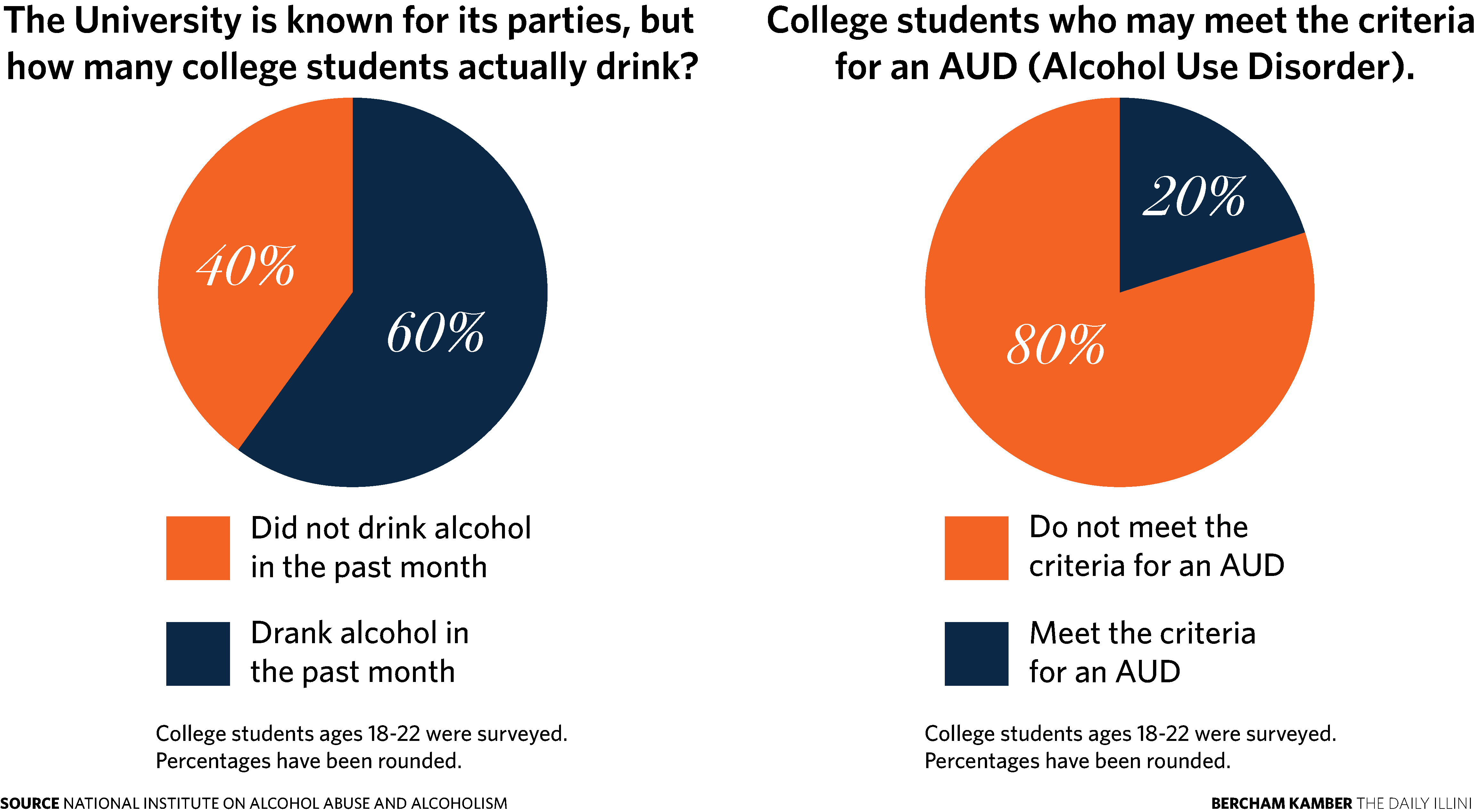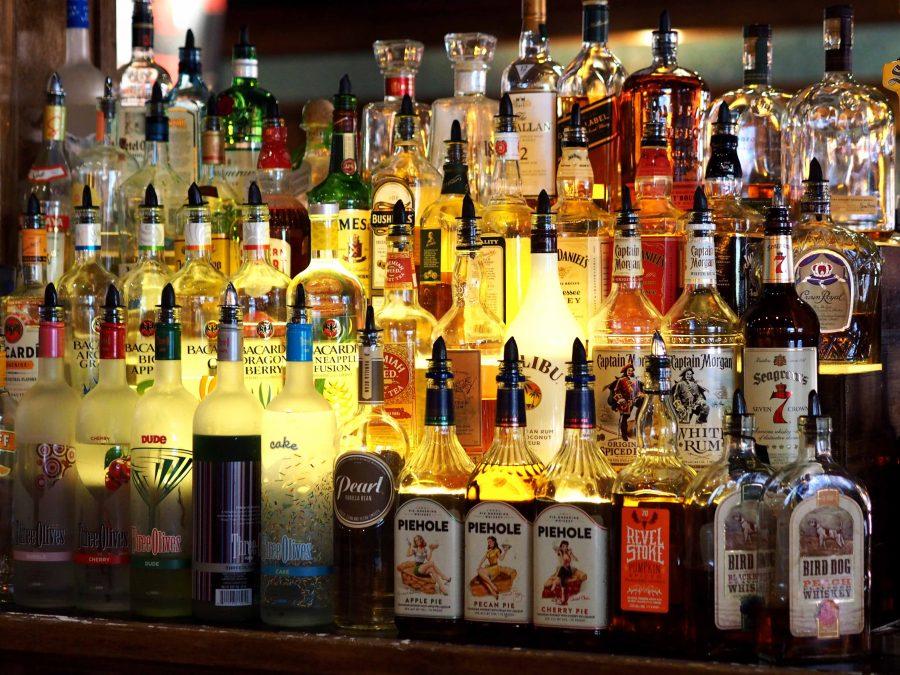The joke may be false — it can be alcoholism when you are in college
Mar 9, 2017
“It’s not alcoholism when you’re in college,” is a common joke heard around many campuses.
But many people struggle to admit they have an Alcohol Use Disorder, said Kurt Hegeman, clinical and certified alcohol and drug counselor at the Counseling Center.
About 1,825 college students between the ages of 18 and 24 die from alcohol-related unintentional injuries every year, according to the National Institute on Alcohol Abuse and Alcoholism.
Almost 60 percent of college students ages 18–22 drank alcohol in the past month, and almost 2 out of 3 of them engaged in binge drinking during that same timeframe.

Get The Daily Illini in your inbox!
“Few students want to believe that they can’t control their drinking and behavior,” Hegeman said in an email.
The Counseling Center offers services to students who may be struggling with an Alcohol Use Disorder. These include confidential assessments with a counselor and recommendations to psycho-education workshops, short-term counseling and group therapy.
“We now use the term Substance Use Disorder instead of alcoholism.” Hegeman said. “Our Center focuses on harm reduction, not necessarily abstinence, when working with students.”
The Counseling Center also offers workshops to student groups on request.
Students may also be referred to the community for Intensive Outpatient Treatment and/or Inpatient Treatment, either here in Champaign-Urbana or in their hometown, Hegeman said.
“I define Alcohol Use Disorder this way: Lack of control when drinking (quantity of drinks and behavior) and the inability to accurately predict the outcome of a drinking episode,” Hegeman said. “There must also be negative consequences to accompany the lack of control.”
Hegeman sees Alcohol Use Disorder negatively impact different aspects of a student’s life, including social, academic, family, physical health and mental health aspects.
But Hegeman believes joking about alcoholism justifies behavior and downplays negative consequences.
“It may also highlight the significant drinking culture on campus and how difficult it can be for some students to drink moderately,” he said.
Elora Orazio, education specialist at the Counseling Center, agrees that the environment on campus can facilitate an Alcohol Use Disorder.
“We have something that happens that high risk alcohol becomes normalized, so it can be harder to identify, when someone really has an underlying issue or concern,” she said.
She notes that there are still ways for students to go out and have fun without drinking too much, like downloading apps that track how much a student drinks.
“If a student chooses to drink, there are lower risk ways to do that,” she said. “Prevention wise, peers and friends can be helpful too, not pressuring friends to drink more.”
Anyone who wants to talk to a counselor is encouraged to call the Counseling Center to schedule an appointment at (217) 333-3704.






